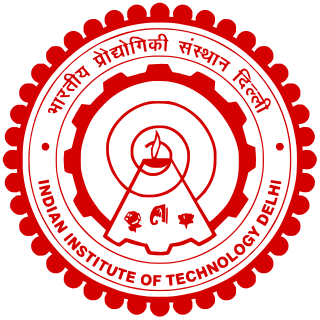
Tel Aviv University is a public research university in Tel Aviv, Israel. With over 30,000 students, it is the largest university in the country. Located in northwest Tel Aviv, the university is the center of teaching and research of the city, comprising 9 faculties, 17 teaching hospitals, 18 performing arts centers, 27 schools, 106 departments, 340 research centers, and 400 laboratories. It is ranked 7th in the world by PitchBook data index.

Science and technology in Israel is one of the country's most developed sectors. Israel spent 4.3% of its gross domestic product (GDP) on civil research and development in 2015, the highest ratio in the world. In 2019, Israel was ranked the world's fifth most innovative country by the Bloomberg Innovation Index. It ranks thirteenth in the world for scientific output as measured by the number of scientific publications per million citizens. In 2014, Israel's share of scientific articles published worldwide (0.9%) was nine times higher than its share of the global population (0.1%).
Maastricht University is a public research university in Maastricht, Netherlands. Founded in 1976, it is the second youngest of the thirteen Dutch universities.

Delhi University, formally the University of Delhi, is a collegiate research central university located in Delhi, India. It was founded in 1922 by an Act of the Central Legislative Assembly and is recognised as an Institute of Eminence (IoE) by the University Grants Commission (UGC). Delhi University is one of the largest university systems in the world with over 400,000 students on its campuses and affiliated colleges. The Vice President of India serves as the university chancellor. The university is ranked 6th by National Institutional Ranking Framework 2024.
A business cluster is a geographic concentration of interconnected businesses, suppliers, and associated institutions in a particular field. Clusters are considered to increase the productivity with which companies can compete, nationally and globally. Accounting is a part of the business cluster. In urban studies, the term agglomeration is used. Clusters are also important aspects of strategic management.
GE Aerospace Research, formerly GE Research, is the research and development division of GE Aerospace. Before 2024, it was a division of the General Electric Company, which split three ways between 2023 and 2024 and pivoted to aviation.

The Indian Institute of Technology Delhi(IIT Delhi) is a public institute of technology located in Delhi, India. It is one of the 23 Indian Institutes of Technology created to be Centre of Excellence for India's training, research and development in science, engineering and technology.

Silicon Wadi is a region in Israel that serves as one of the global centres for advanced technology. It spans the Israeli coastal plain, and is cited as among the reasons why the country has become known as the world's "start-up nation". The highest concentrations of high-tech industry in the region can be found around Tel Aviv, including small clusters around the cities of Raʽanana, Petah Tikva, Herzliya, Netanya, Rehovot, and Ness Ziona. Additional clusters of high-tech industry can be found in Haifa and Caesarea. More recent high-tech establishments have been raised in cities such as Jerusalem and Beersheba, in towns such as Yokneam Illit, and in Airport City. Israel has the third highest number of startups by region and the highest rate of startups per capita in the world.

The Istituto Italiano di Cultura, the Italian Cultural Institute in English, is a worldwide non-profit organization created by the Italian government. It promotes Italian culture and is involved in the teaching of the Italian language. The creation of the institute was in response to the desire for a deeper understanding of Italian culture throughout many continents. By organising cultural activities it supports the work carried out by the Italian Embassies and Consulates. There are 85 Italian Cultural Institutes throughout major cities around the world.

The Ministry of Education (MoE) is a ministry of the Government of India, responsible for the implementation of the National Policy on Education. The ministry is further divided into two departments: the Department of School Education and Literacy, which deals with primary, secondary and higher secondary education, adult education and literacy, and the Department of Higher Education, which deals with university level education, technical education, scholarships, etc.

Venice International University(VIU) is an international center for higher education and research located on the island of San Servolo, in Venice, Italy.
Swissnex is a network of education, research, innovation and art outposts aimed at connecting Switzerland with the world's innovation hubs. The network is managed by the State Secretariat for Education, Research and Innovation (SERI) in cooperation with the Federal Department of Foreign Affairs (FDFA). There are currently five Swissnex branches: Boston (2000), San Francisco (2003), Shanghai, China (2008), Bangalore, India (2011) and Rio de Janeiro, Brazil (2013). One Swissnex office operated in Singapore from 2004 to 2015.
The Health Valley covers the Western Switzerland region, where the life sciences sector extends from Geneva to Bern, including the seven cantons of Bern, Fribourg, Geneva, Jura, Neuchâtel, Valais and Vaud. This cluster presents a critical mass of 1,000 companies, research centers and innovation support structures, representing today more than 25,000 employees. The Health Valley strives to animate the life sciences ecosystem of the region, by establishing thriving bridges between its ambassadors.
Intralink is an international business development consultancy specialising in Asia.

The Ministry of Science, Technology and Environment of the Republic of Cuba, also known as CITMA, is the Cuban government ministry which oversees state politics in matters of science, technology, environment and the usage of nuclear energy. Its headquarter is in a building of Calle Línea, a street of central Havana next to the Malecón, and part of Vedado, a ward of the municipal borough of Plaza de la Revolución.









